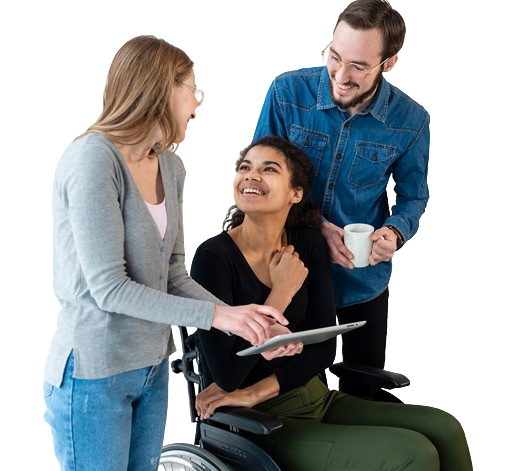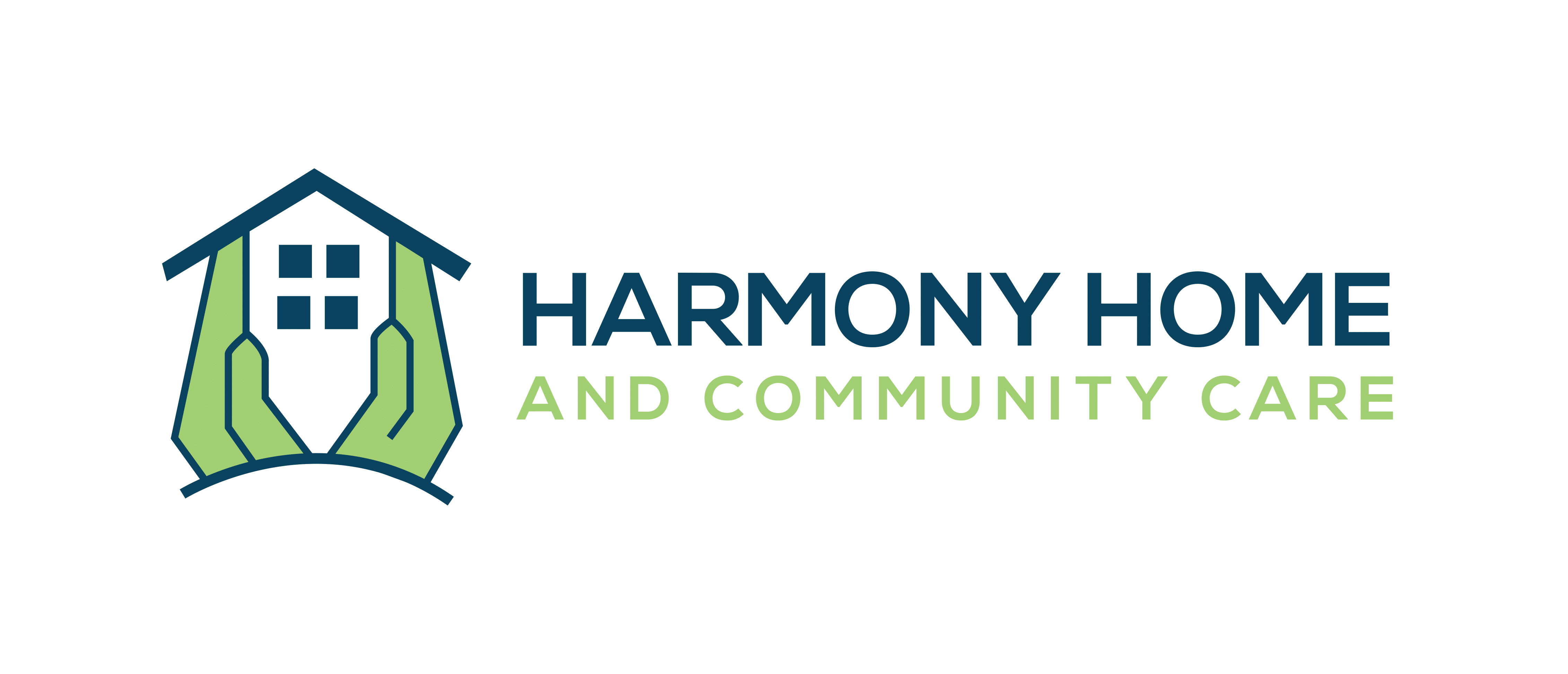Harmony Homes
May 31, 2024
Independent Living Skills Resources for NDIS Individuals

Independent Living Skills Resources for NDIS Individuals
1. ILC Program
The Australian Government Department of Social Services has developed the Independent Living Centre (ILC) program to assist people with disability and their families and carers to identify and source assistive technology (AT) and equipment solutions that improve their independence and quality of life. The ILC program offers a wide range of services to help individuals with disabilities overcome barriers and improve their daily living skills.
Here are some key ways in which the ILC program assists people:
· Assessment and advice:
The ILC program provides comprehensive assessments to identify each individual’s specific needs and challenges. Through these assessments, the program’s experts can offer personalized advice and recommendations on the assistive technology and equipment that can promote independence and mobility.
· Demonstration and loan services:
The ILC program understands the importance of trying out different AT devices and equipment before making any purchasing decisions. They provide demonstration and loan services where individuals can test various products to see which ones are most suitable for their needs. This allows individuals to make informed choices and select the right tools to support their independent living.

Recent Posts
Categories
· Training and education:
The ILC program offers training programs and workshops to individuals, families, and carers to enhance their knowledge
and skills in using assistive technology and equipment effectively. These training sessions cover a wide range of topics, including the use of communication aids, mobility devices, and home modifications. By equipping individuals and their support networks with the necessary knowledge, the ILC program empowers them to maximize their independence.
· Information and resources:
The ILC program serves as a valuable source of information and resources related to independent living and assistive technology. They provide resources such as fact sheets, videos, and guides that cover various topics like accessibility, communication, and adaptive equipment. These resources enable individuals to stay informed about the latest advancements in AT and learn about various strategies to enhance their independent living skills.
· Collaboration and partnerships:
The ILC program actively collaborates with other organizations, service providers, and researchers to improve the effectiveness of their assistance and support. By working in partnership with stakeholders in the disability sector, they ensure that their services address the evolving needs and challenges faced by people with disabilities.
2. NDIS (Independent Living Skills Resources for NDIS Individuals)
The NDIS is a government-funded program in Australia that aims to empower individuals with disabilities by providing them with financial support and access to various services and resources. Here are some key ways in which the NDIS helps participants develop their independent living skills:
· Person-centered planning:
The NDIS takes a person-centered approach, which means that participants have control over their supports and services. Through the planning process, participants work with their support coordinator to identify their goals and aspirations. This includes identifying areas where they need assistance to live independently. By focusing on the individual’s unique needs and preferences, the NDIS ensures that the support provided is tailored to their specific requirements.
· Support for daily living:
The NDIS provides funding for a range of supports that assist participants in their daily living activities. This can include assistance with personal care, meal preparation, household tasks, and transportation. By providing funding for these supports, the NDIS enables participants to maintain their independence and carry out daily activities in their homes, communities, and workplaces.
· Support coordination:
The NDIS offers support coordination services, which aim to assist participants in navigating the disability support system and accessing the supports they need. Support coordinators work closely with participants to develop and implement their NDIS plans, ensuring
that their goals and aspirations are met. They can help participants find suitable service providers, coordinate appointments, and connect them with other community resources that support independent living.
· Assistive technology and equipment:
The NDIS provides funding for assistive technology (AT) and equipment that can enhance participants’ independence and improve their daily living skills. This can include items such as mobility aids, communication devices, home modifications, and sensory supports. By providing access to assistive technology, the NDIS enables participants to overcome barriers and engage more actively in their communities.
· Skills development and training:
The NDIS recognizes the importance of skills development in promoting independent living. Participants can receive funding for various training programs and therapies that aim to enhance their skills in areas such as communication, self-care, budgeting, and social interactions. By investing in skills development, the NDIS empowers participants to build their capacity and achieve greater independence in their daily lives.
· Specialist support services:
The NDIS provides funding for specialist support services that target specific needs and challenges faced by participants. This can include services such as occupational therapy, speech therapy and language pathology, behavior support, and psychological support. By accessing these specialist services, participants can gain the necessary skills, strategies, and supports to navigate the challenges they may encounter in their daily lives
3. UCan2 (Independent Living Skills Resources for NDIS Individuals)
The UCan2 Centre is a dedicated organization that plays a vital role in assisting individuals to develop their independent living skills. The center focuses on supporting people with disabilities and providing them with the resources and guidance they need to enhance their independence and quality of life.
Here are some key ways in which the UCan2 Centre assists individuals in developing their independent living skills:
· Personalized assessment and goal setting:
The UCan2 Centre starts by conducting personalized assessments to identify each individual’s specific needs, challenges, and goals. Through these assessments, the center’s professionals work closely with the individuals to gain a comprehensive understanding of their strengths, aspirations, and areas where they require support to live independently. By involving the individuals in the goal-setting process, the UCan2 Centre ensures that the support provided is tailored to their unique needs and preferences.
· Skills development and training programs:
The UCan2 Centre offers a range of skills development and training programs designed to enhance individuals’ abilities to live independently. These programs cover a variety of areas such as cooking skills, budgeting and financial management, communication and social skills, personal care and hygiene, and household tasks. By participating in these programs, individuals gain essential skills and strategies that enable them to navigate daily living activities with confidence and autonomy.
· Assistive technology and adaptive equipment:
The UCan2 Centre provides access to assistive technology (AT) and adaptive equipment that supports individuals in their independent living endeavors. This can include items such as mobility aids, communication devices, ergonomic tools, and home modifications. By offering access to AT and equipment solutions, the UCan2 Centre empowers individuals to overcome physical barriers and engage more fully in their homes and communities.
· Individualized support and counseling:
The UCan2 Centre offers individualized support and counseling services to address the emotional, psychological, and social aspects of independent living. This can involve one-on-one counseling sessions, peer support groups, and workshops that focus on self-advocacy, self-esteem building, and coping strategies. By providing personalized support and fostering a supportive community, the UCan2 Centre helps individuals develop the resilience and self-confidence needed to pursue their independent living goals.
· Community integration and participation:
The UCan2 Centre actively promotes community integration and participation by organizing social activities, networking events, and community outings. These opportunities allow individuals to connect with others, build social skills, and engage in meaningful activities that contribute to their overall well-being. By facilitating community inclusion, the UCan2 Centre supports individuals in developing a sense of belonging and independence within their local communities.
· Collaboration and resource access:
The UCan2 Centre collaborates with other organizations, service providers, and community resources to expand the range of support available to individuals. This may include connecting individuals with vocational training programs, housing support services, and advocacy organizations. By leveraging these partnerships, the UCan2 Centre ensures that individuals have access to a comprehensive network of resources that support their independent living journey.
4. Association for the blind of WA
The Association for the Blind of WA (Western Australia) is dedicated to empowering individuals with vision impairment to develop their independent living skills and lead fulfilling lives. The organization offers a range of services and resources aimed at enhancing the independence, confidence, and capabilities of people with vision loss.
Here are some key ways in which the Association for the Blind of WA assists individuals in developing their independent living skills:
· Vision rehabilitation services:
The Association for the Blind of WA provides comprehensive vision rehabilitation services that are tailored to the individual needs of people with vision impairment. These services encompass orientation and mobility training, which helps individuals navigate their environments safely and independently. Additionally, the organization offers training in activities of daily living such as cooking, cleaning, personal care, and organization skills to ensure that individuals can manage their daily routines effectively.
· Assistive technology training and access:
The organization offers support in accessing and utilizing assistive technology and adaptive equipment designed to enhance independence for individuals with vision loss. This may include training in the use of screen readers, magnification software, braille devices, and other technology solutions that assist in tasks such as reading, communication, and navigation. By providing training and access to assistive technology, the Association for the Blind of WA supports individuals in overcoming barriers to independent living.
· Independent living skills workshops and programs:
The organization hosts workshops and programs focused on developing a wide range of independent living skills. These may cover topics such as financial management, household organization, meal preparation, personal grooming, and home safety. Through these workshops, individuals with vision impairment gain practical skills and strategies that enable them to live more independently and confidently.
· Peer support and social activities:
The Association for the Blind of WA facilitates opportunities for individuals with vision impairment to build social connections and peer support networks. By organizing social activities, support groups, and community events, the organization fosters a sense of community and belonging. This social support is crucial in helping individuals develop the confidence and social skills needed to engage in independent living and participate actively in their communities.
· Access to community resources and advocacy:
The organization provides access to a range of community resources and support services, including links to government agencies, vocational rehabilitation programs, and advocacy organizations. Through these connections, individuals with vision impairment can access additional support and opportunities to further develop their independent living skills, pursue education, and gain employment.
· Emotional and psychological support:
The Association for the Blind of WA offers counseling services and support groups to address the emotional and psychological aspects of living with vision impairment. Coping with vision loss can present unique challenges, and the organization aims to provide individuals with the tools and support needed to navigate these challenges, build resilience, and maintain a positive outlook as they work toward greater independence.
There are many resources available to support NDIS participants to improve their independent living skills. It’s important for participants and their carers to consider which resources will be most beneficial based on their unique circumstances and needs. By accessing these resources, NDIS participants can increase their independence and quality of life.


